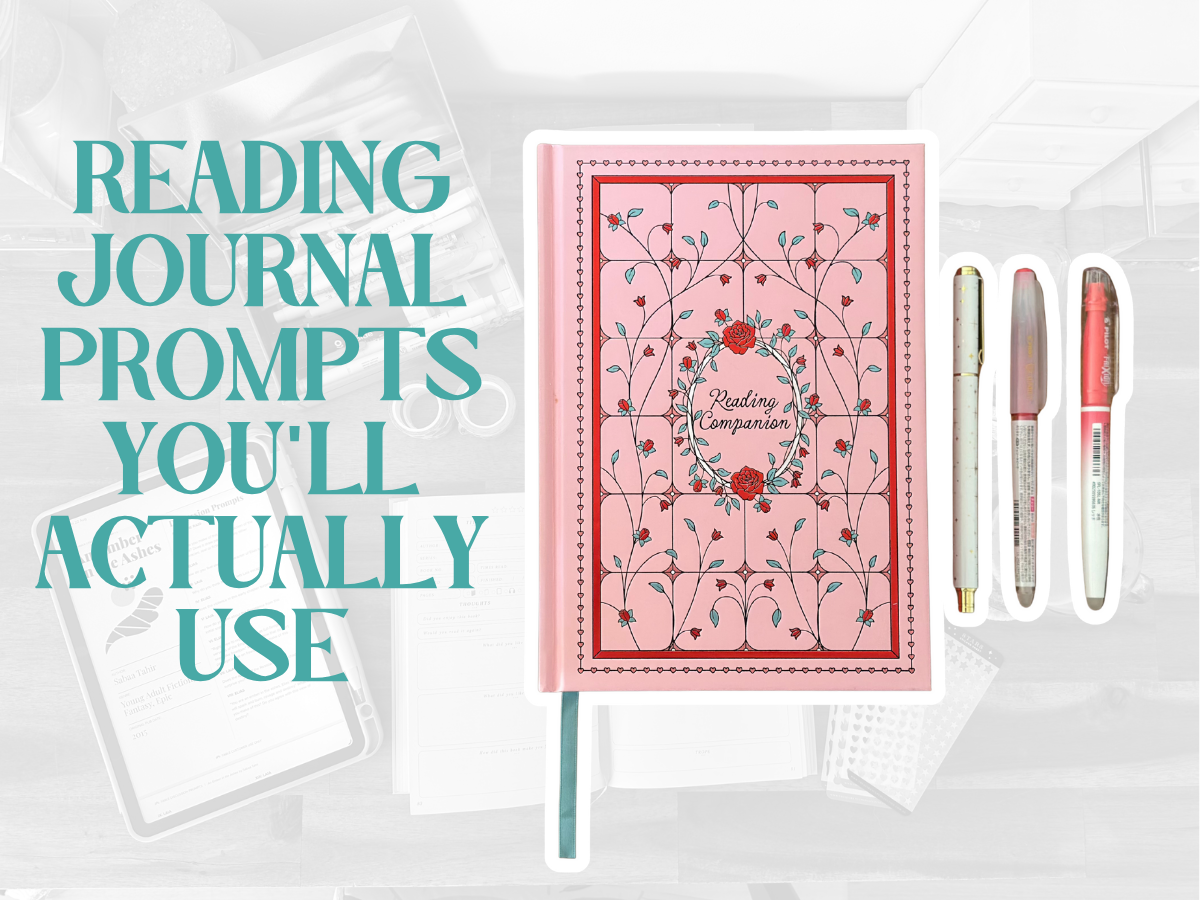From page to pen: prompts that spark reflection
Part 4 of the Reading Journal Series. Catch up on Part 1 here, Part 2 here, and Part 3 here.
You've got your reading journal ready, you're excited to review the latest book you’ve read, and then you just stare at the blank page. Or maybe you write "Loved it, 5 stars" and call it a day––but deep down, you wanted to capture more.
Enter: journaling prompts.
I've been experimenting with reading journal prompts for a while now, and I've learned that the best ones don't just ask you to summarize, they get you to think deeper, make connections, and sometimes even surprise yourself with what you discover.
So let's look at why many prompts fall flat, how to actually use them, and a few ways to build a prompt library and system that works for you.
Why most prompts feel… meh
A lot of reading journal prompts go nowhere (in my opinion) because they’re:
Too surface-level
Too generic
Written as if there’s one “right” way to read
Not connected to you or your style of reading
The right prompt is different. It’s specific enough to spark something, open-ended enough to invite your own perspective, and flexible enough to adapt to different genres and moods.
How to use prompts effectively
Start with what grabs you: You don’t need to answer every prompt for every book. Skim a few and notice which one makes you think, “Hmm… that’s interesting.” That’s the one to start with.
Follow the threads: One answer might spill into another question entirely. Let that happen! Your best insights might come from these side quests.
Adapt to fit the book: If a prompt doesn’t quite work (say it’s about character growth but you’re reading nonfiction), tweak it. Maybe ask, “How did the author’s perspective shift?” or “Which idea felt most alive?”
Use them as conversation starters: Whether it’s book club, a buddy read, or just a chat in the comments section, prompts can take you beyond “I liked it” into something richer.
Making prompts your own
Mix and match: Some days you’ll want a lighthearted question, other times something deeper. Follow your mood.
Keep a running list: Save the ones that click for you. I keep mine in a phone note so they’re always handy.
Create your own: The most powerful prompts usually come from your own curiosity while you’re reading.
Don't overthink it: A few sentences can be more revealing than a whole page. You don’t need to turn every entry into an essay.
Your prompt toolkit
Here’s a simple system to try:
Before you start reading: Choose one "getting started" prompt
While reading: Jot down quick responses if something sparks
After finishing: Pick 2-3 prompts that feel most interesting or relevant to your book
Later: Revisit a prompt days or weeks down the line. Your perspective might have shifted.
The point isn’t to answer everything perfectly. Prompts are a jumping-off point for reflection.
One of my favorite entries started with a simple question about a scenario in the book I read. That led me to think about those characters from different angles, which led me to realize a couple of different outcomes that could occur, which led to a complete shift in how I think about plot twists in books. All from one question.
That's the power of a good prompt! It doesn’t just help you record what you read, it helps you process what you've read, and can help you grow as a reader.
Ready to try it? I’ve put together a free PDF of my go-to reading journal prompts so you can start experimenting right away.


